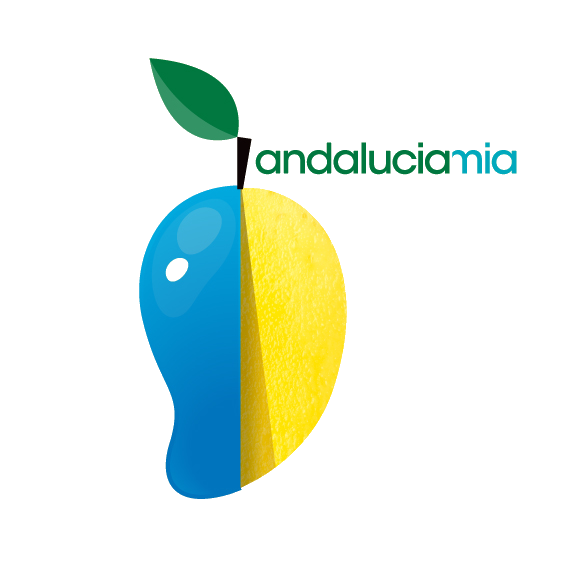Arenas best things to see and do
Arenas and its almonds
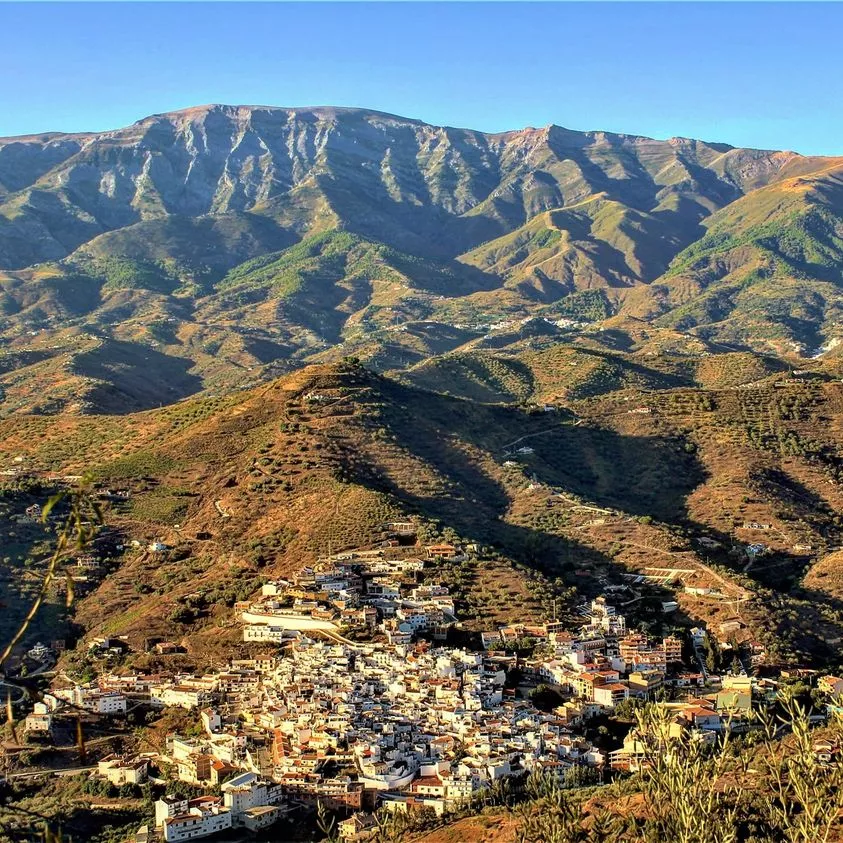
Visit the village of Arenas and the incredible fortress of Bentomiz
In this article you will find the essential information about what to see in Arenas :
- A few words about Arenas
- What to see in Arenas?
- What to see around the village
- What to do in Arenas?
- activities
- ideas for guided tours
- fiestas and ferias
- Where is Arenas?
- Booking accommodation
- Some useful links
- Experiences to discover in the province of Málaga
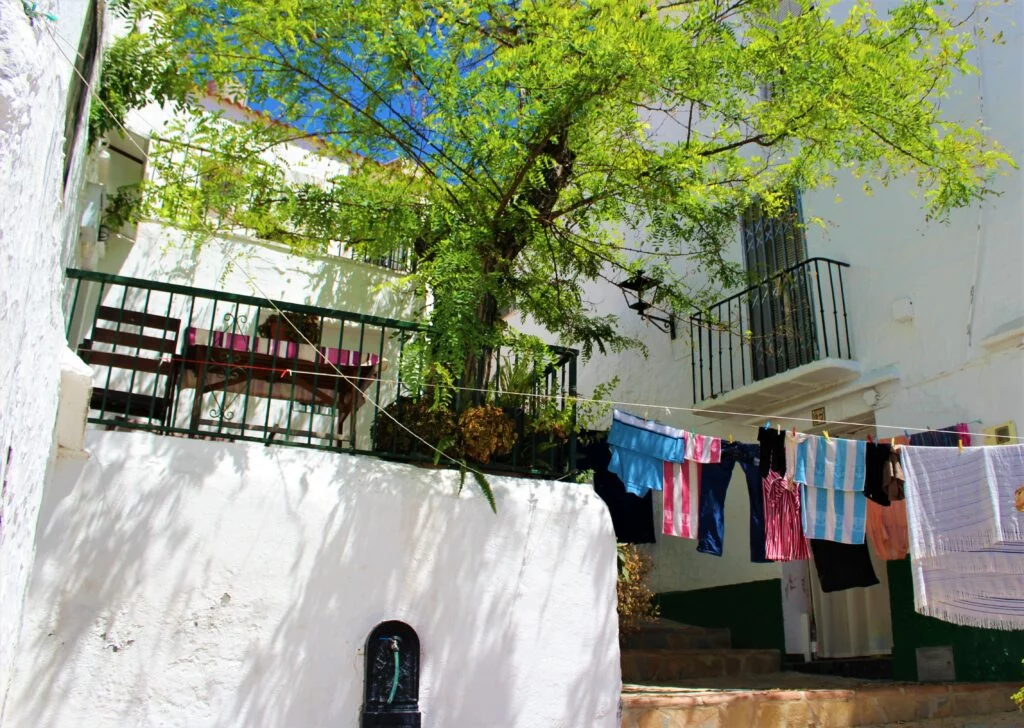
A few words about Arenas
Arenas is located in Axarquia in the province of Málaga.
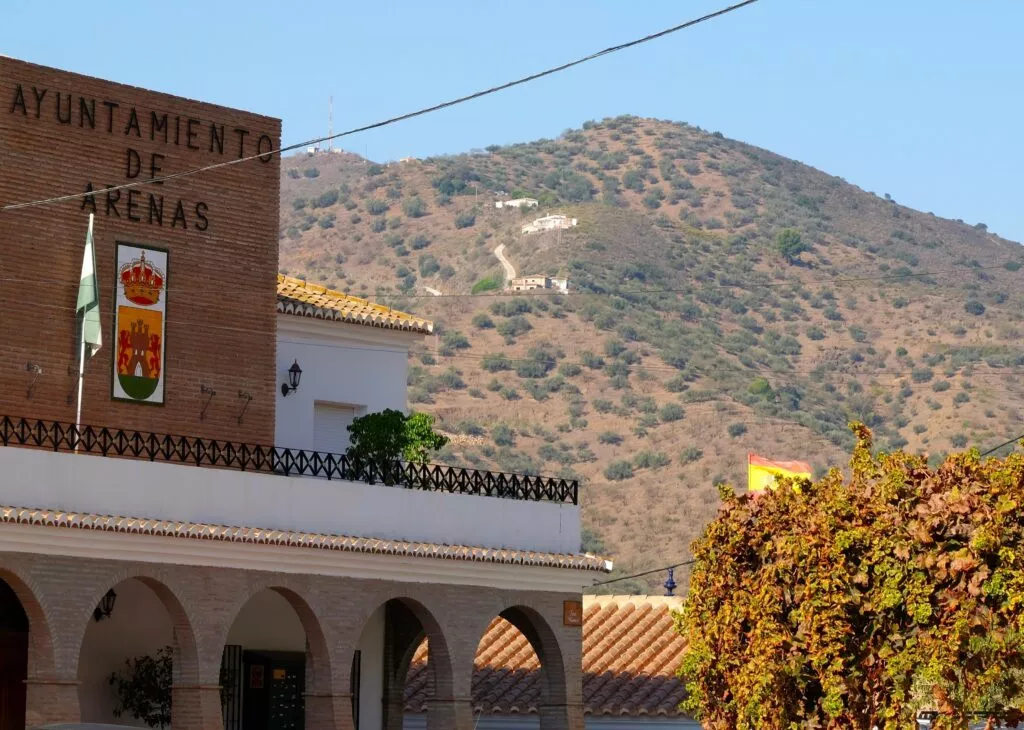
Arenas takes its name from the sand (la arena) that the river Seco deposited in its surroundings. It is a village of Arabic origin whose character can be seen in the narrow streets of this white village.
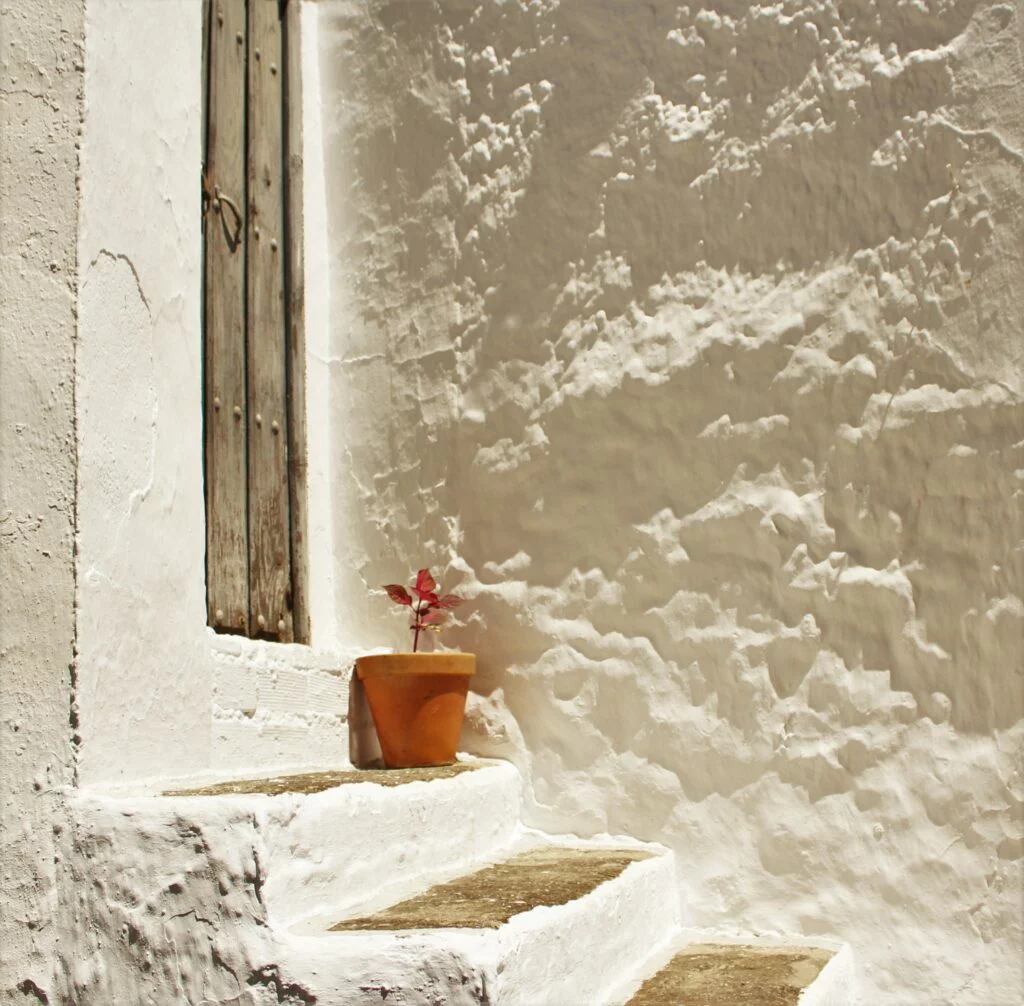
What to see in Arenas?
The Arab fountain of the village
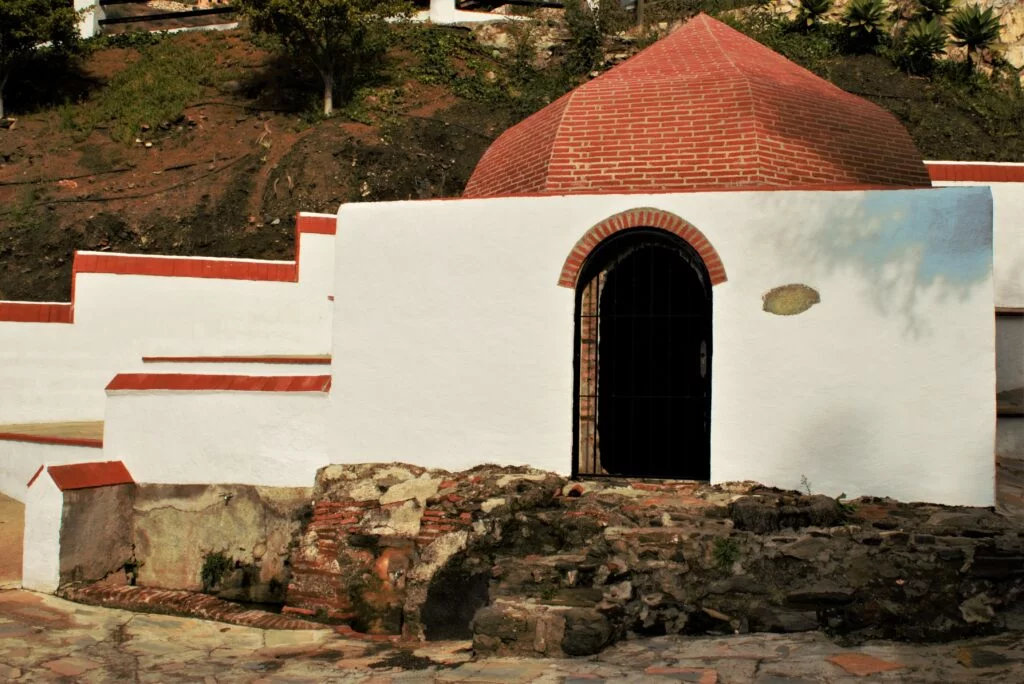
This fountain is located at the entrance to the village from Velez-Malaga.
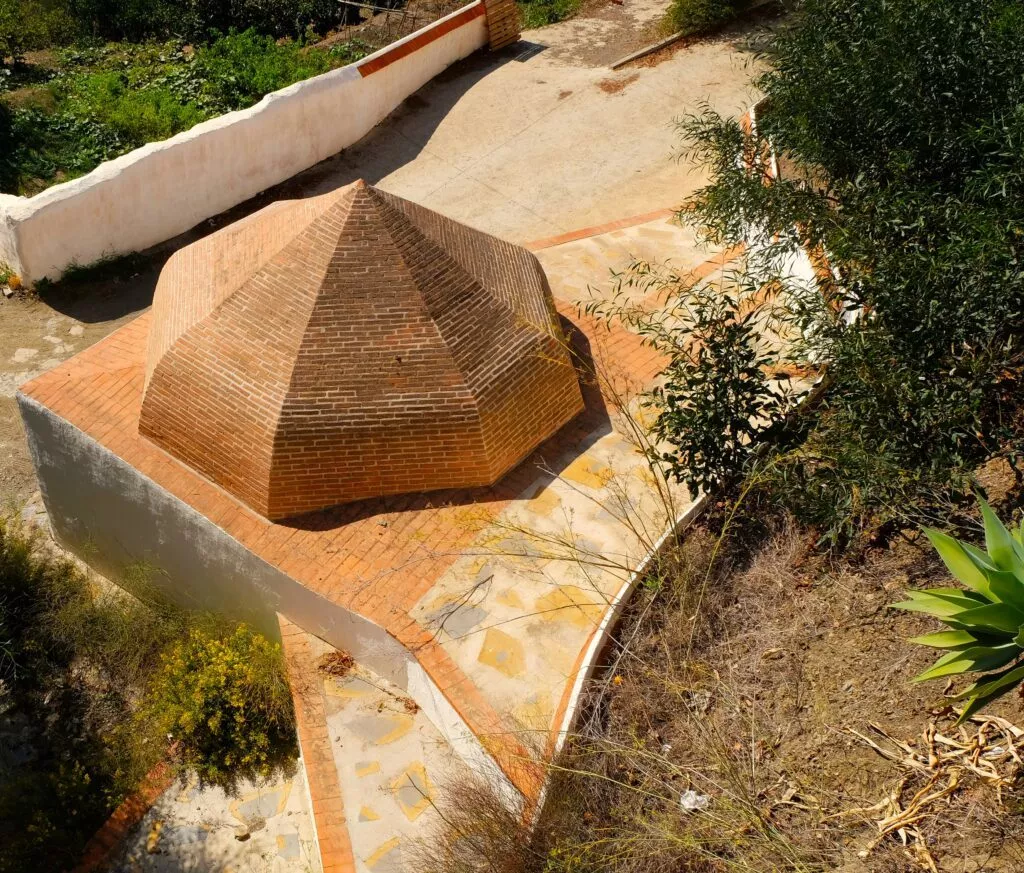
The street signs
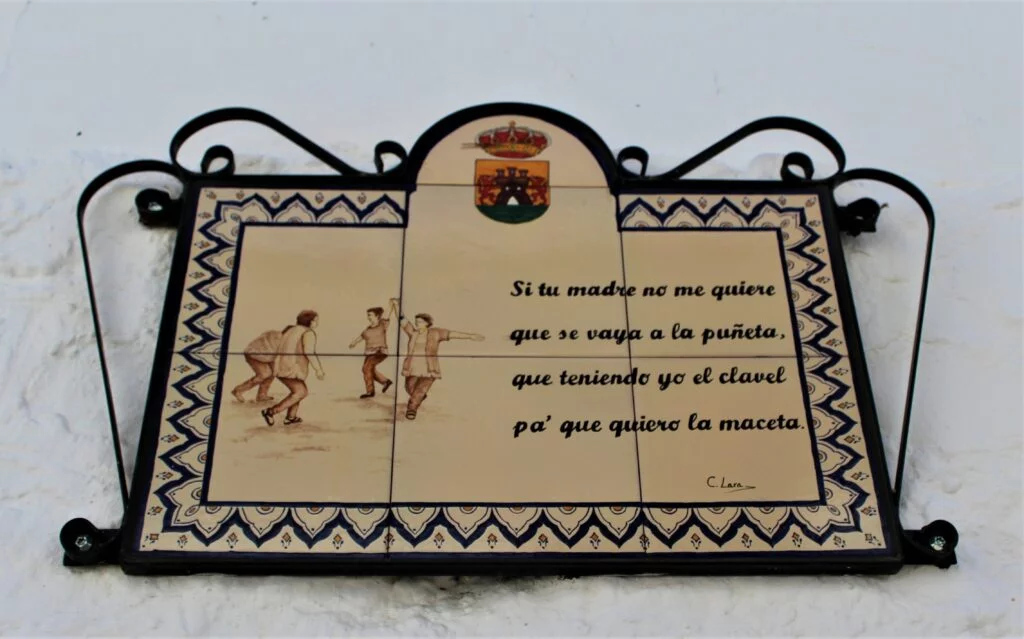
There are a number of street signs in the village, some of which are full of Andalusian humour.
Santa Catalina Church
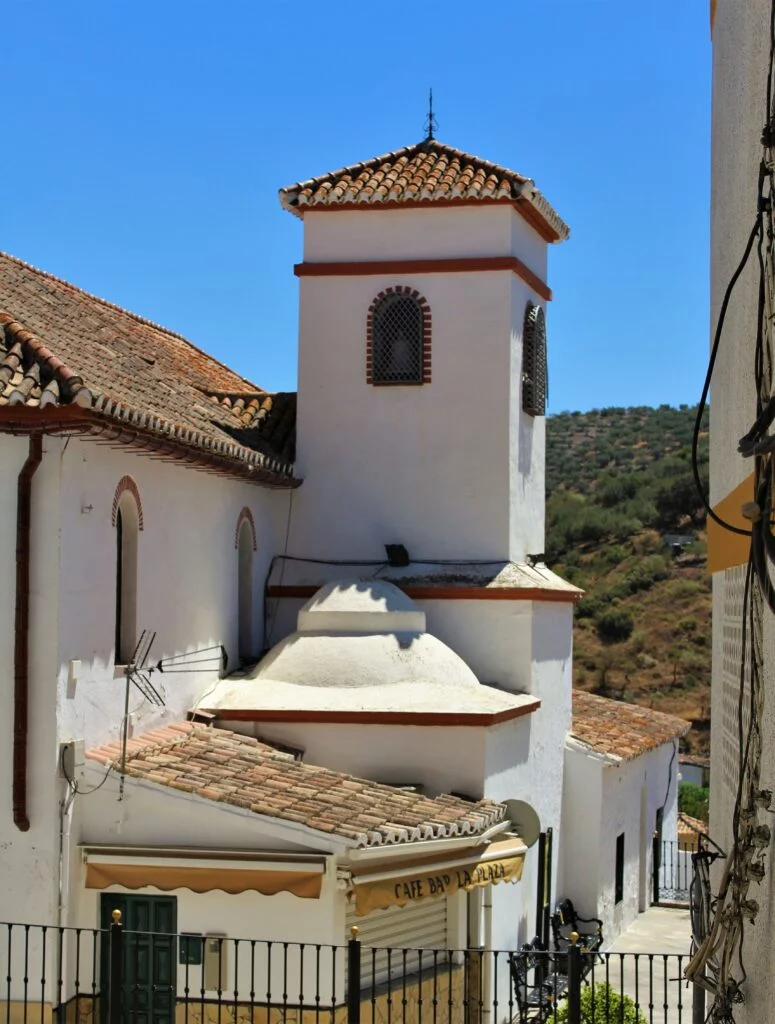
This church, built over a former mosque, is well worth a visit. Inside you can see a work by the famous local painter, Evaristo Guerra.
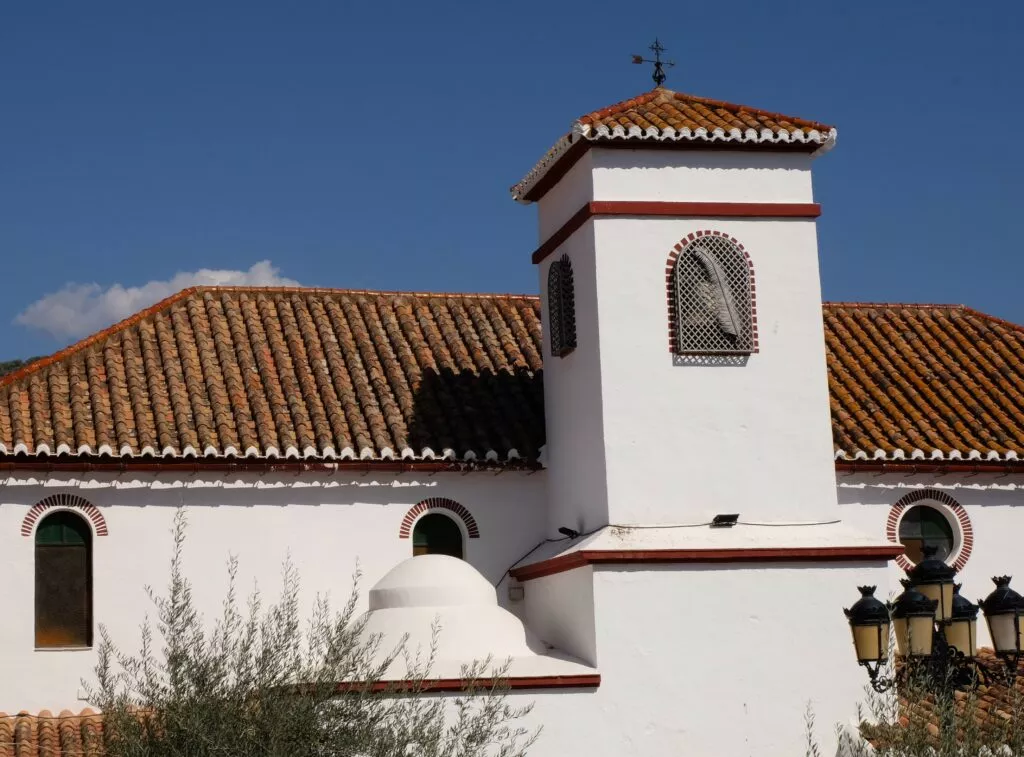
Walk through the narrow streets of this typical white village
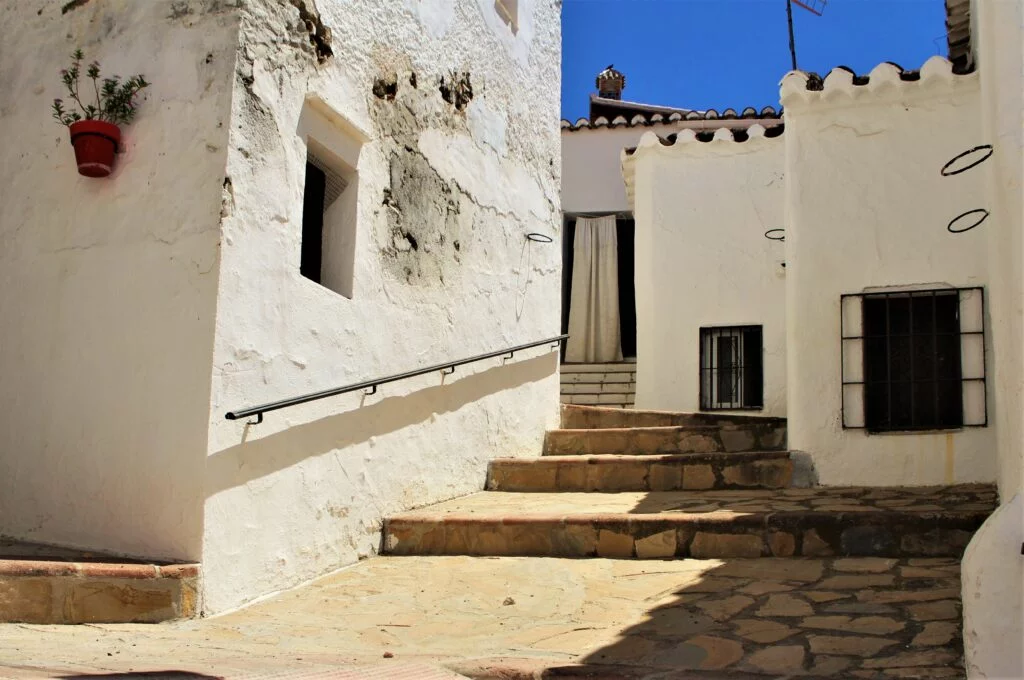
Arenas is a village that has retained its authenticity.
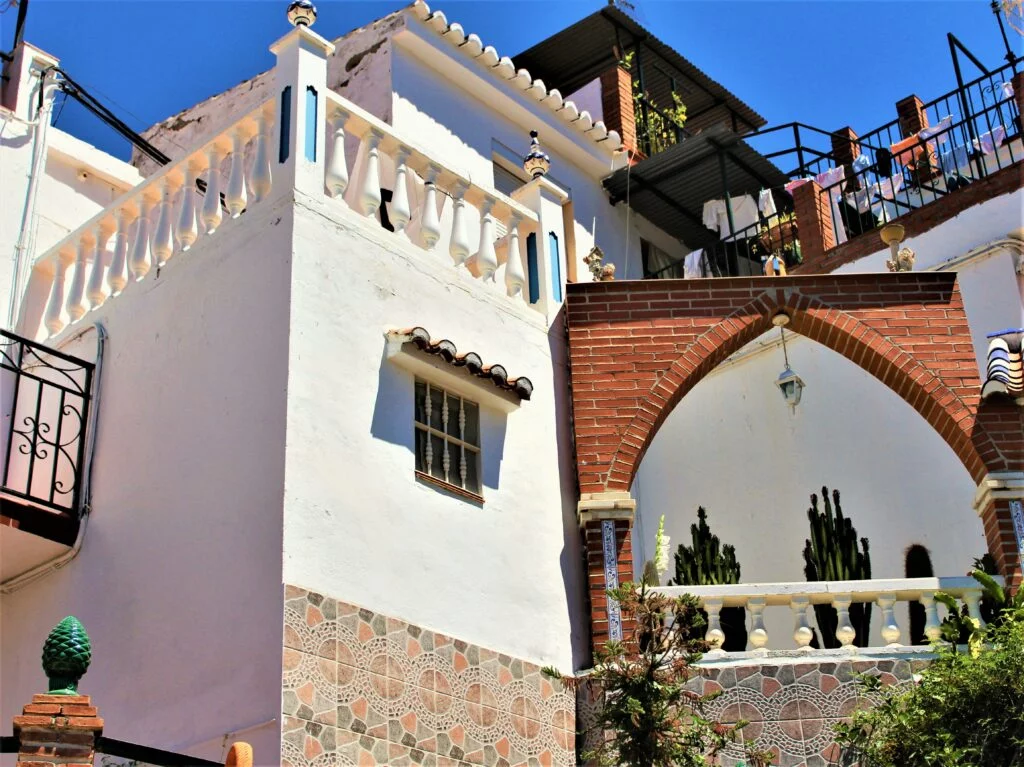
What to see around the village of Arenas
The hamlet of Daimalos
The hamlet of Daimalos is located 5 km from Arenas and is worth a visit.
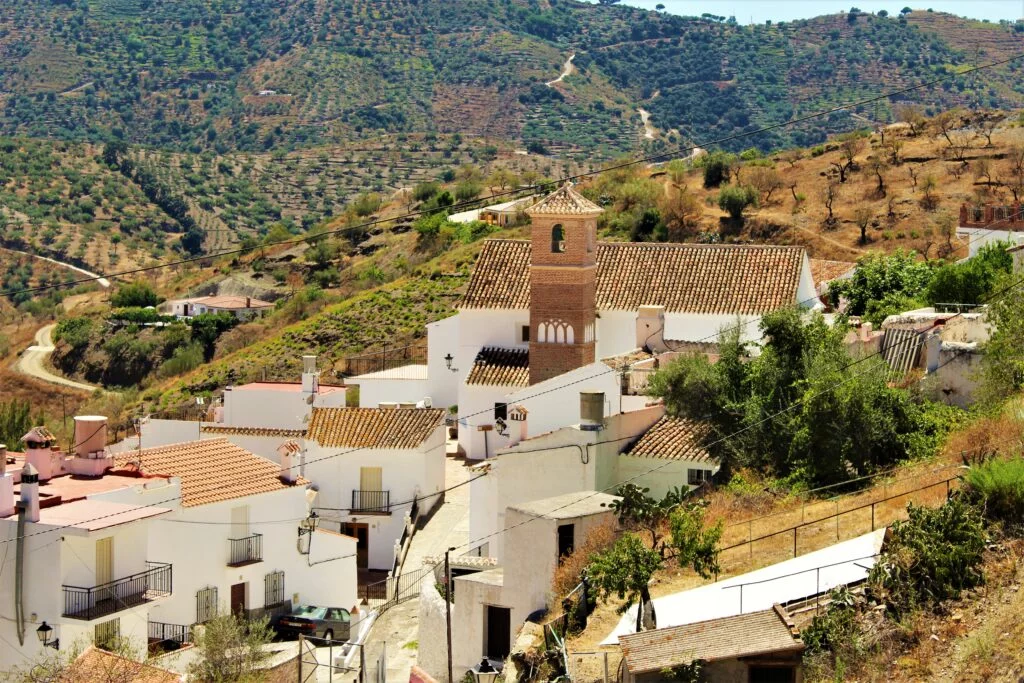
In Daimalos you will find two small treasures from the Al-Andalus period, the Fountain of Love and one of the oldest alminars in Spain.
The ruins of Bentomiz Castle
This is the jewel of Arenas…., which deserves to be better promoted and protected.
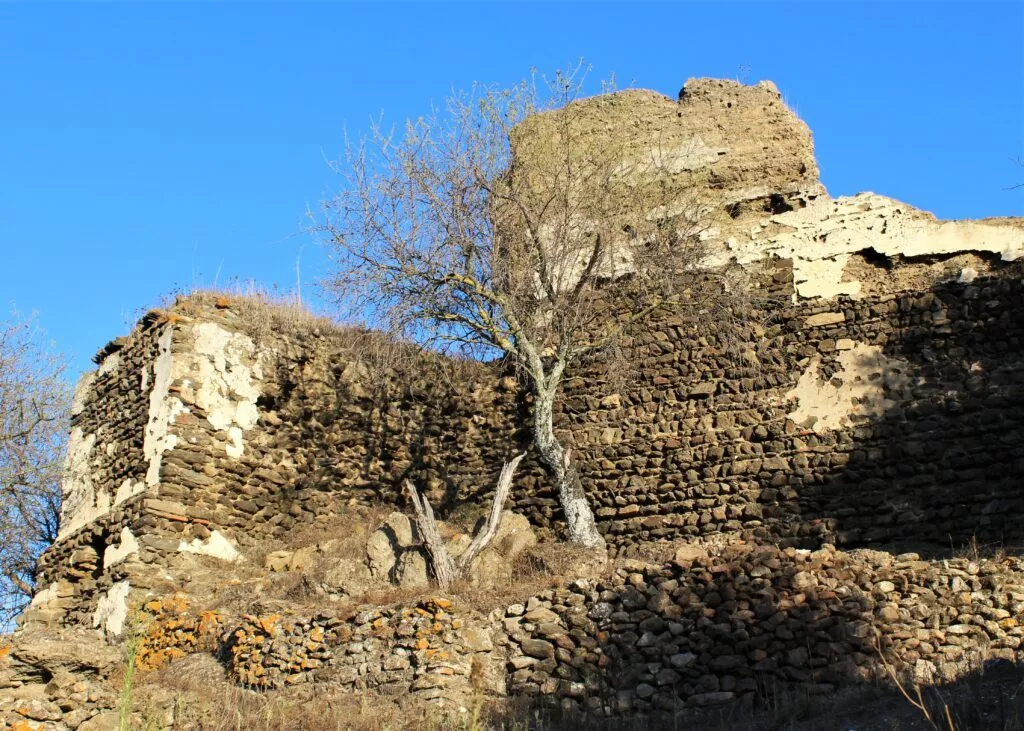
The fortress of Bentomiz is the largest castle in the province of Málaga, with a surface area of 36,000 square metres.
It is an exceptional monument. Its origins have crossed several civilizations.
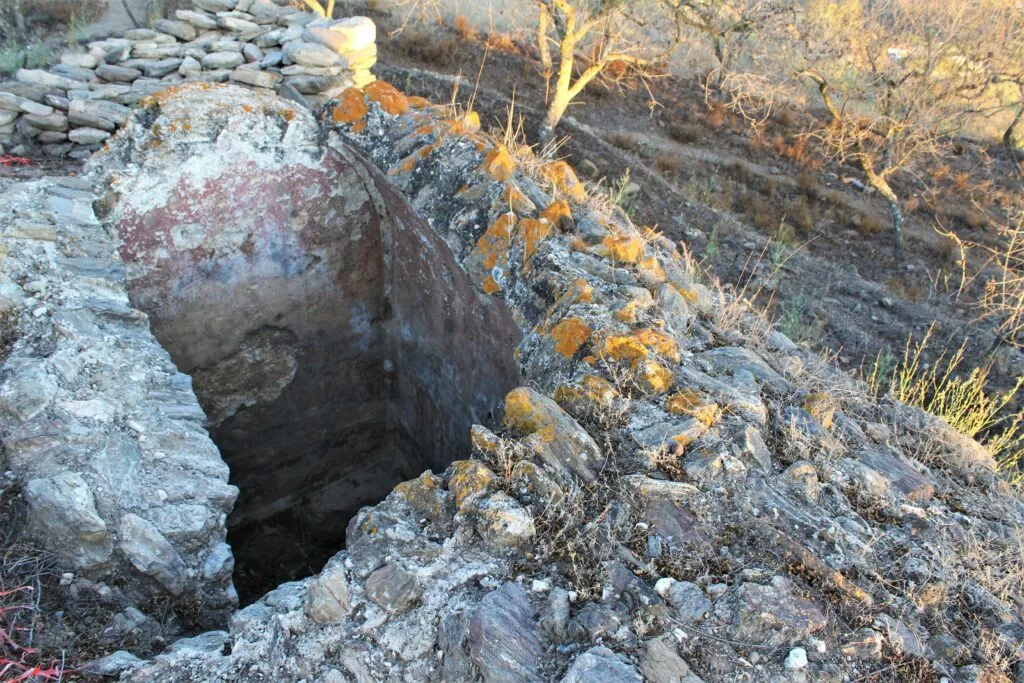
This site was first occupied by the Iberians, then by the Phoenicians, Greeks and Romans. Of the latter, the ruins of the ancient thermal baths remain in the fortress, with the 3 water rooms: cold, warm and hot. These baths were later used to make Arab baths.
On the ruins of this castle you can still see the crenellations (almenas).
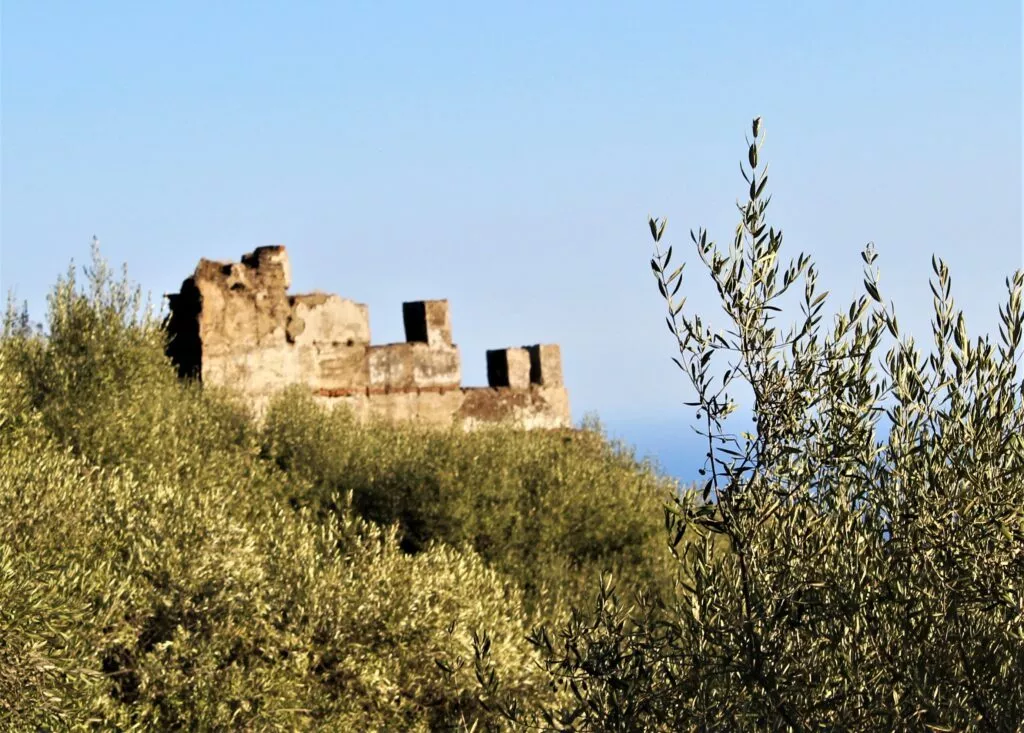
These are the only ones left from this period in the whole province. They date from the 11th century and were built under Abdallah ibn Buluggin, a Granada king of the Zirid dynasty.
The Zirids were a Berber tribe from Algeria who established the first kingdom of Granada, before the Almoravids (a Moroccan Berber tribe) took power.
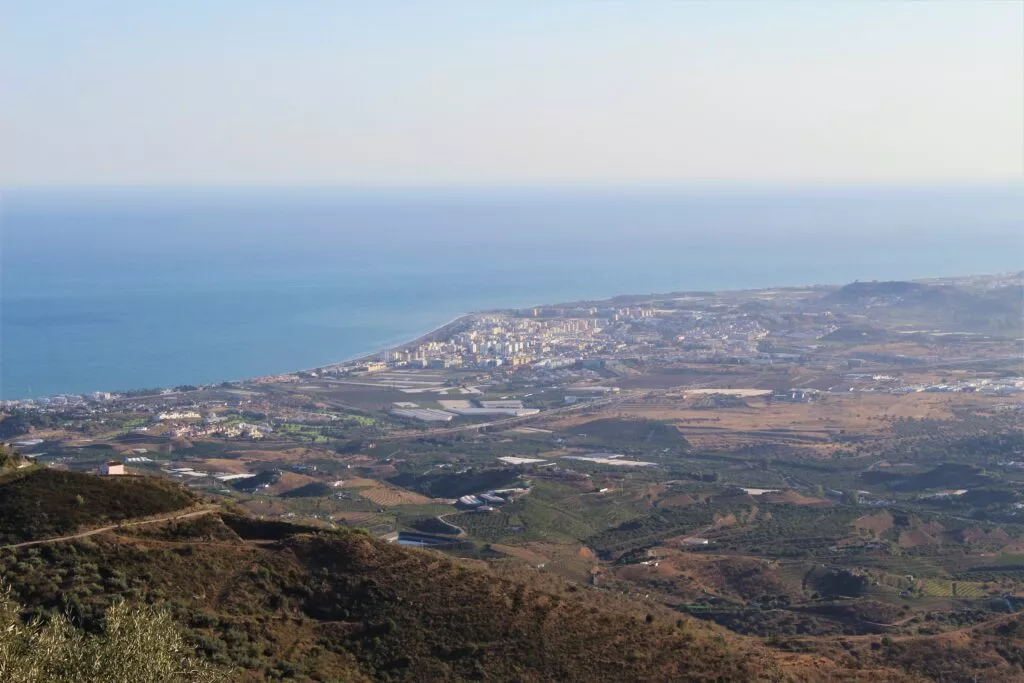
From this fortress, the territory was guarded from the sea as well as from the surrounding mountains. You can see the Sierra de Tejeda, Velez-Malaga and several villages, including Competa and Sayalonga.
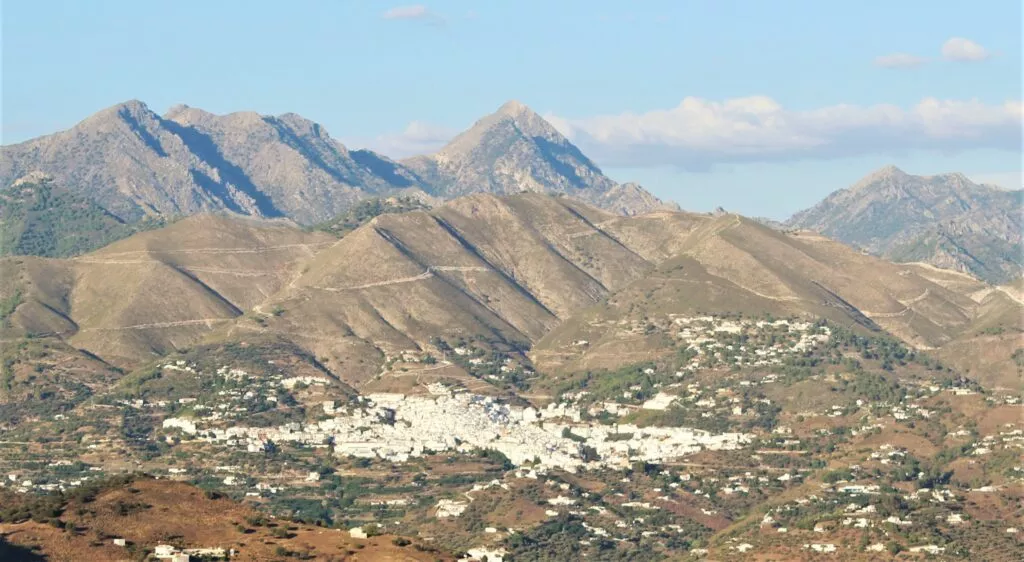
It was a stronghold of the kingdom of Granada until 1487
The fortress was conquered by the Catholic kings a few days before the capture of Velez Málaga in April, which was followed by the capture of Malaga in August of the same year.
Among the ruins, two aljibes (water tanks) can be distinguished.
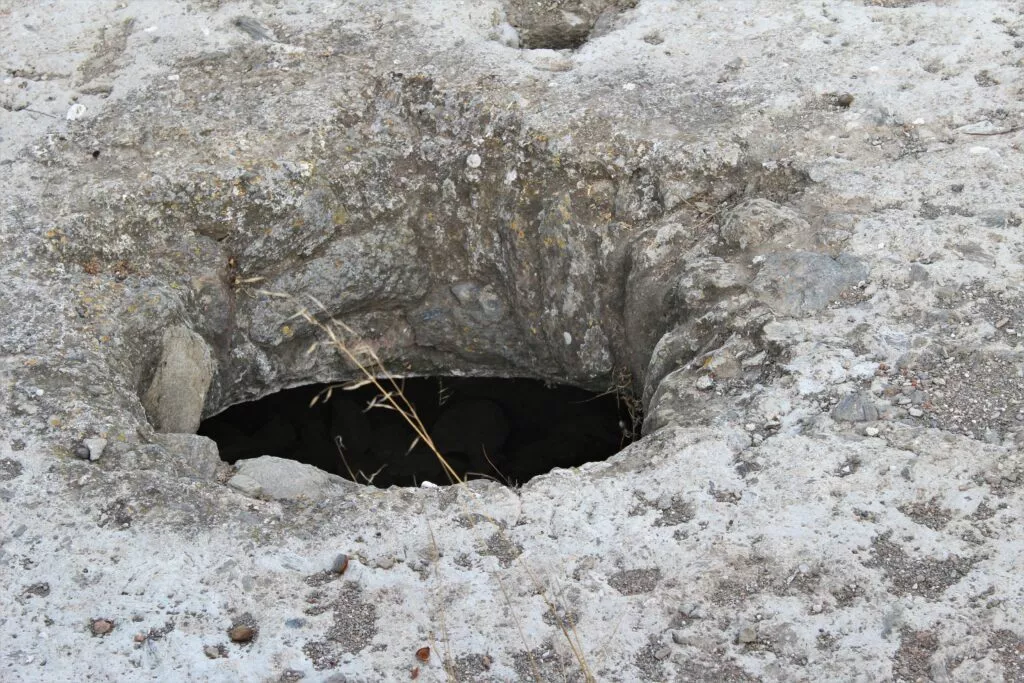
Inside the Aljibe :
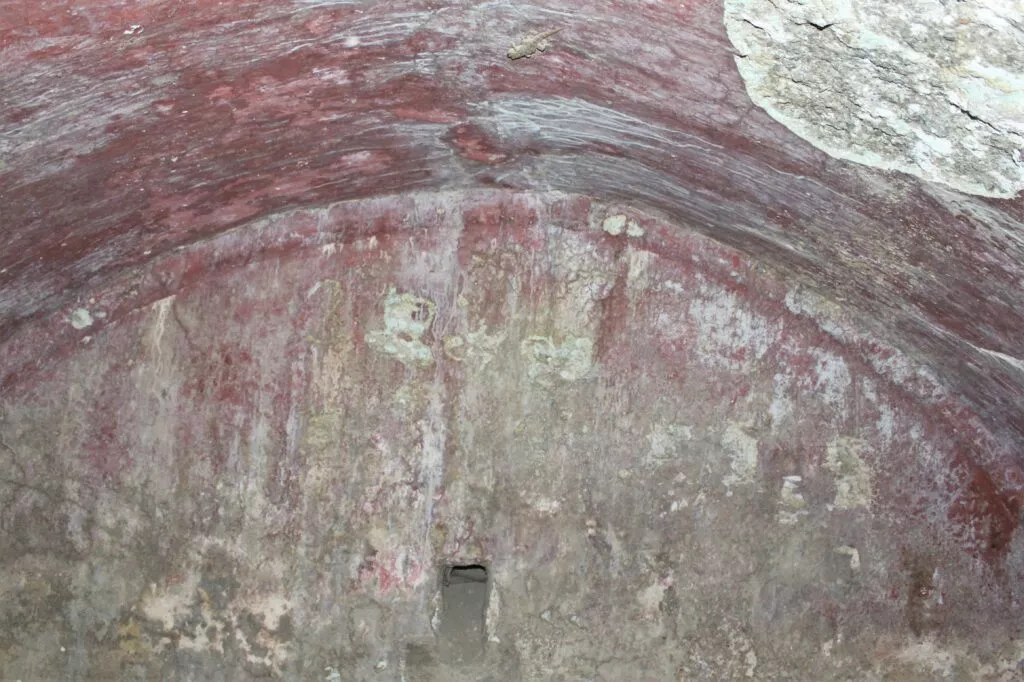
The walls of these tanks still have an ochre colour. This was to preserve the drinking water and prevent it from rotting.
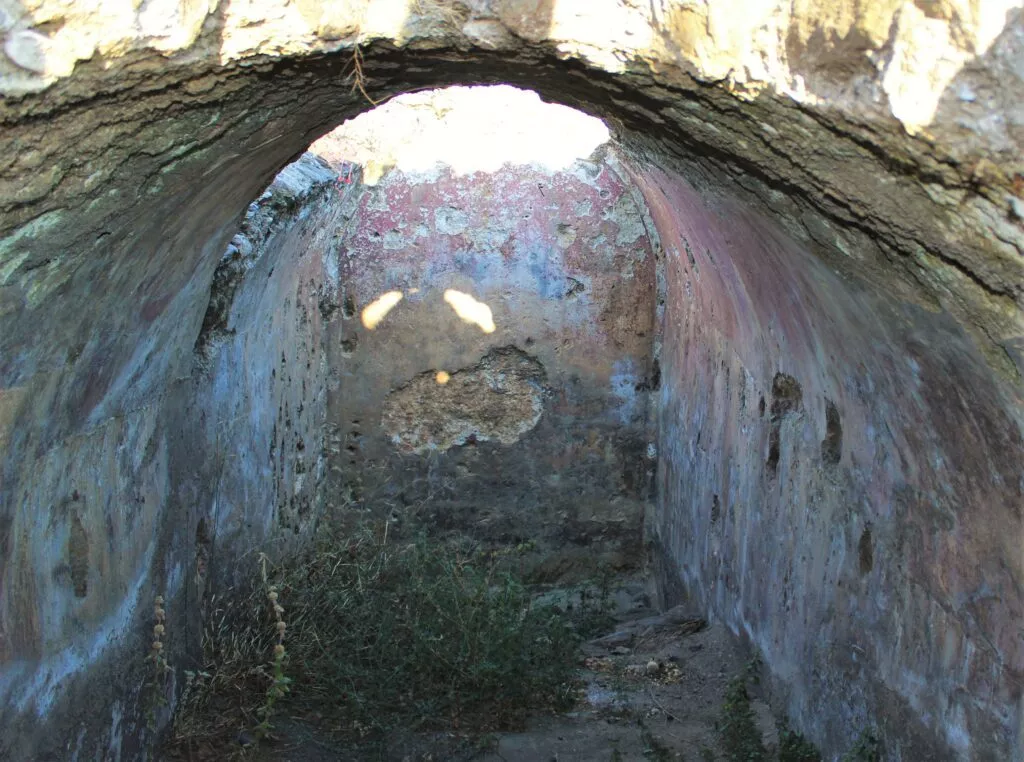
Finally, we can still see parts of the surrounding wall of the Bentomiz fortress.
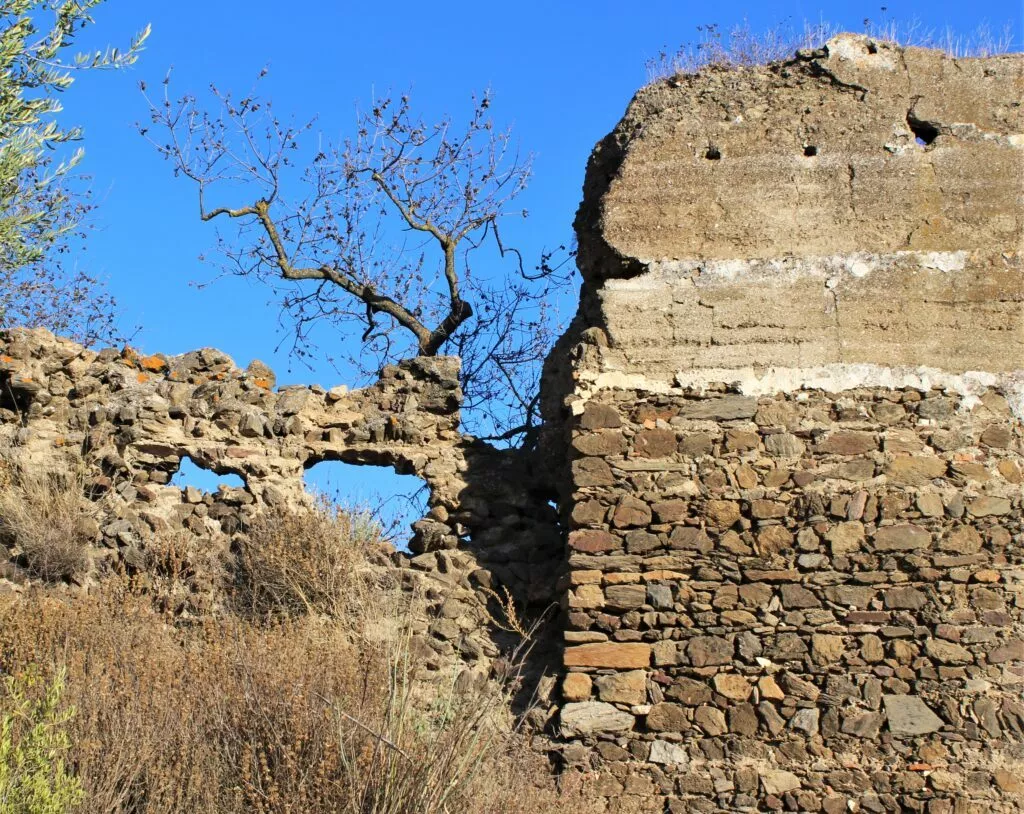
This fortress was one of the masterpieces of the Nasrid kingdom of Granada. It is about 1000 years old!
Arenas, the almond trees in bloom and the chameleon
The village is surrounded by fields of almond trees. They are cultivated in terraces, the stone walls, los balates, are used to fight against erosion.
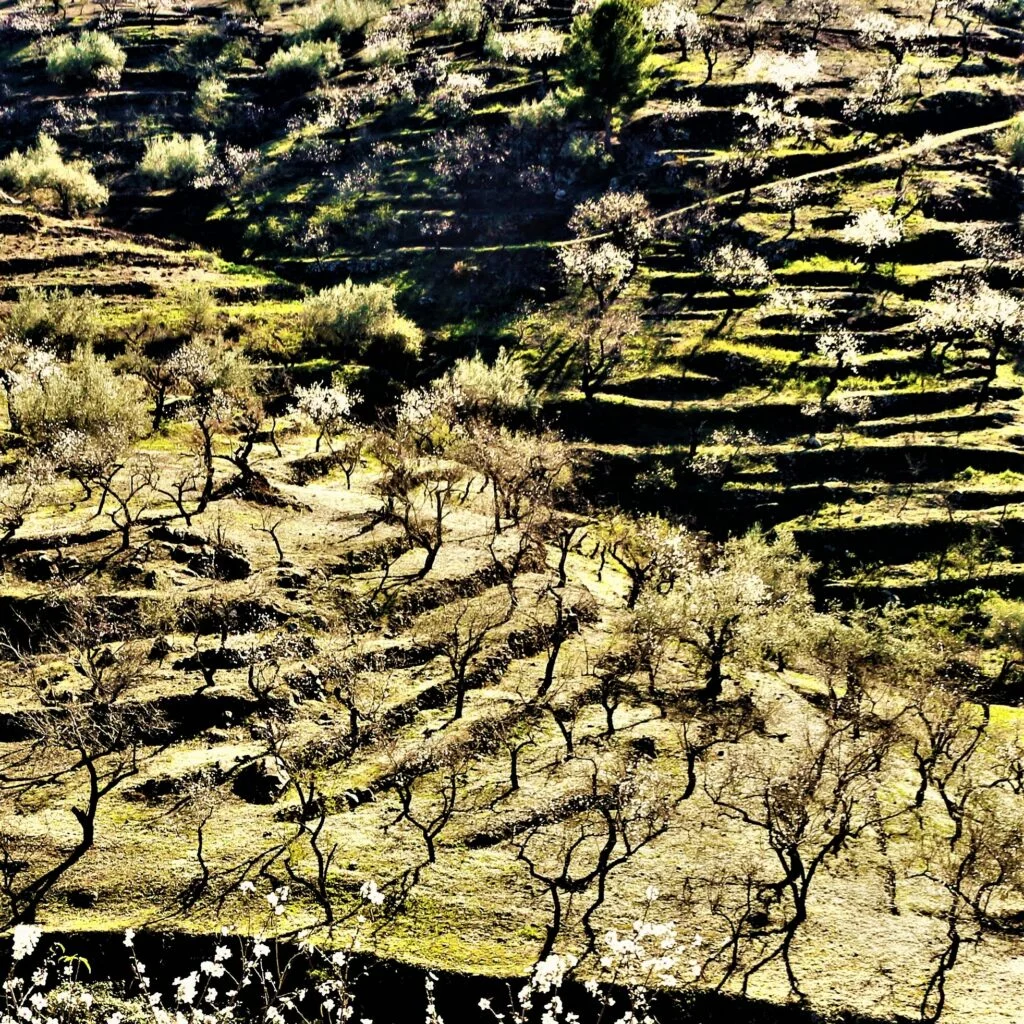
The balates of Axarquia have been classified in 2017 as Intangible Heritage of Humanity by UNESCO. See the link to the UNESCO article.
Arenas is also known to be home to a large population of chameleons. It lives in its natural habitat with the subtropical climate of Axarquia.
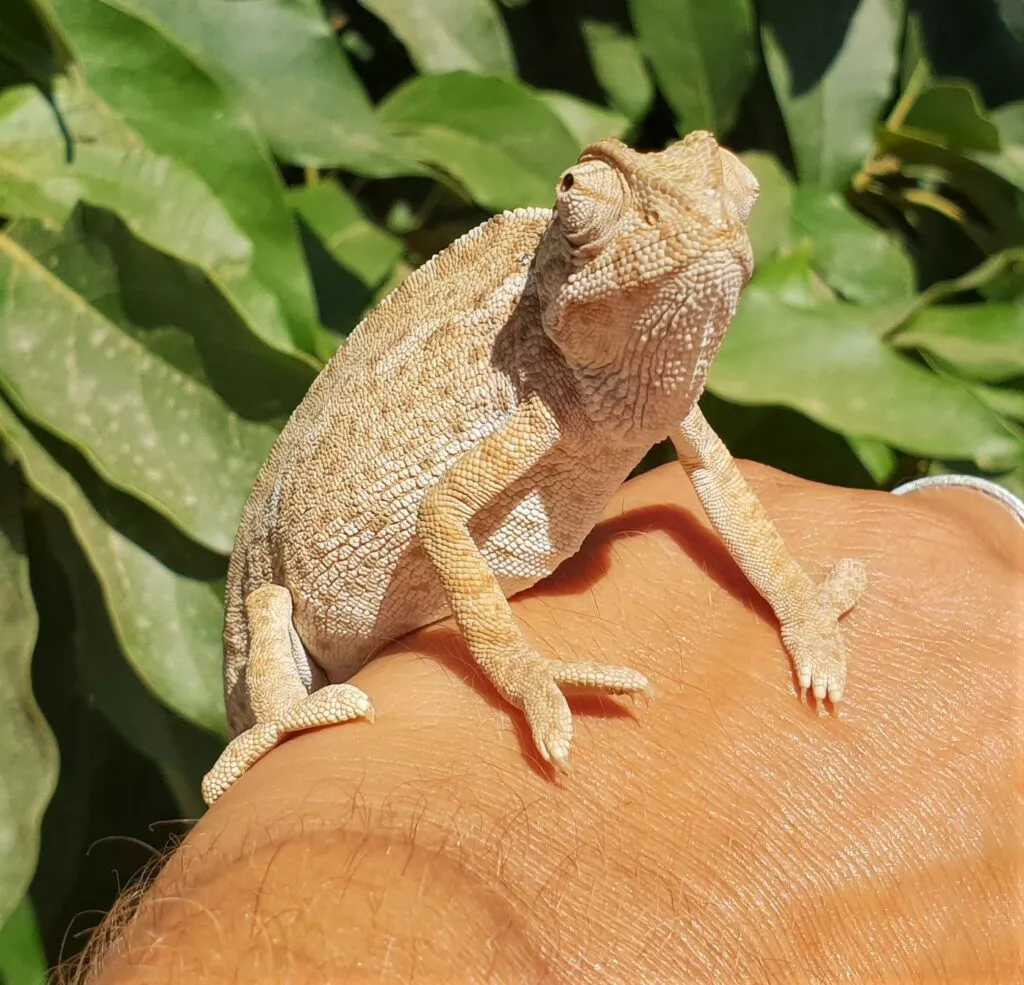
These animals are, of course, protected. And it is recommended to be vigilant on the road to avoid running over them. Because of its protective way of hiding in its environment, it is difficult to see them on the road.
A final word on Arenas:
The village was formerly known as Arenas del Rey. It was in this village that Ferdinand, the Catholic king, settled to prepare the conquest of Velez-Malaga in 1487.
Today, only one village in the province of Granada bears this name: Arenas del Rey (Province of Granada). It is also worth seeing. This village has preserved the last Resinera in Andalucia.
What to do in Arenas?
Activities
In the surroundings, it is possible to find very nice activities:
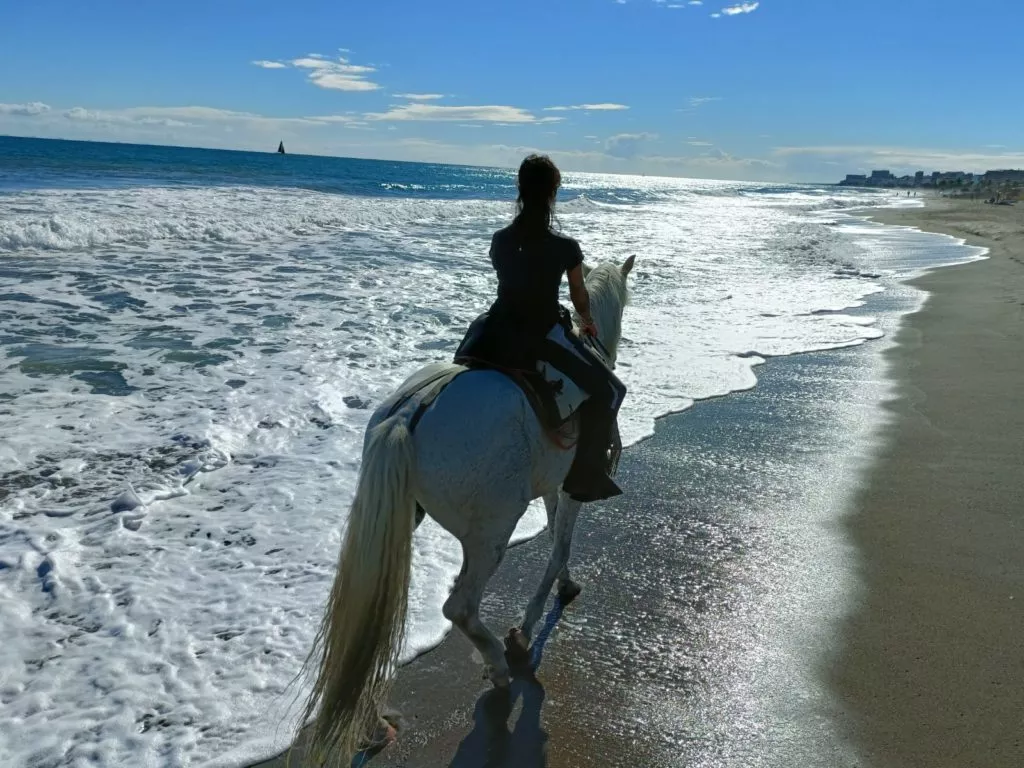
In the surroundings, it is possible to find very nice activities:
- horse riding, on the beach or in the mountains
- diving in Nerja and Torrox
- guided tours (villages of Axarquia, Cordoba, Alhambra,…)
- via ferrata (Caminito del Rey,…)
- hiking (rio Chillar, El Saltillo with the hanging bridge,…)
- canyoning (in the rio Verde,…)
- astrotourism in Alhama
- snorkeling
- visit Nerja cave
Use the following link to access all the activities to do. This link provides you with all the details of each activity.
Ideas for guided tours
A very good local guide, Cipriano, offers thematic and seasonal guided tours of the villages of Axarquia. These tours leave from Nerja, Torrox and Torre del Mar.
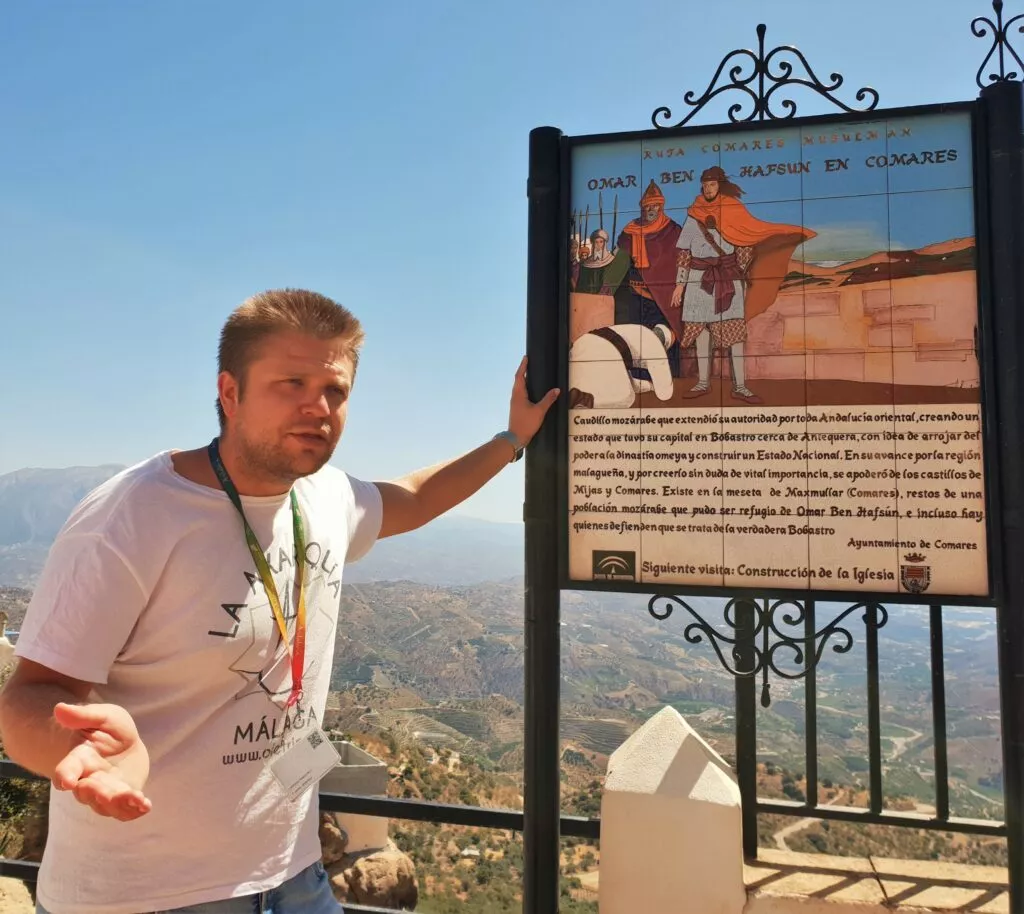
For example, Cipriano organises a visit to the almond blossom fields from Nerja. The almond blossom route, which passes through Arenas, offers a beautiful natural spectacle. This visit is only possible in January and February.
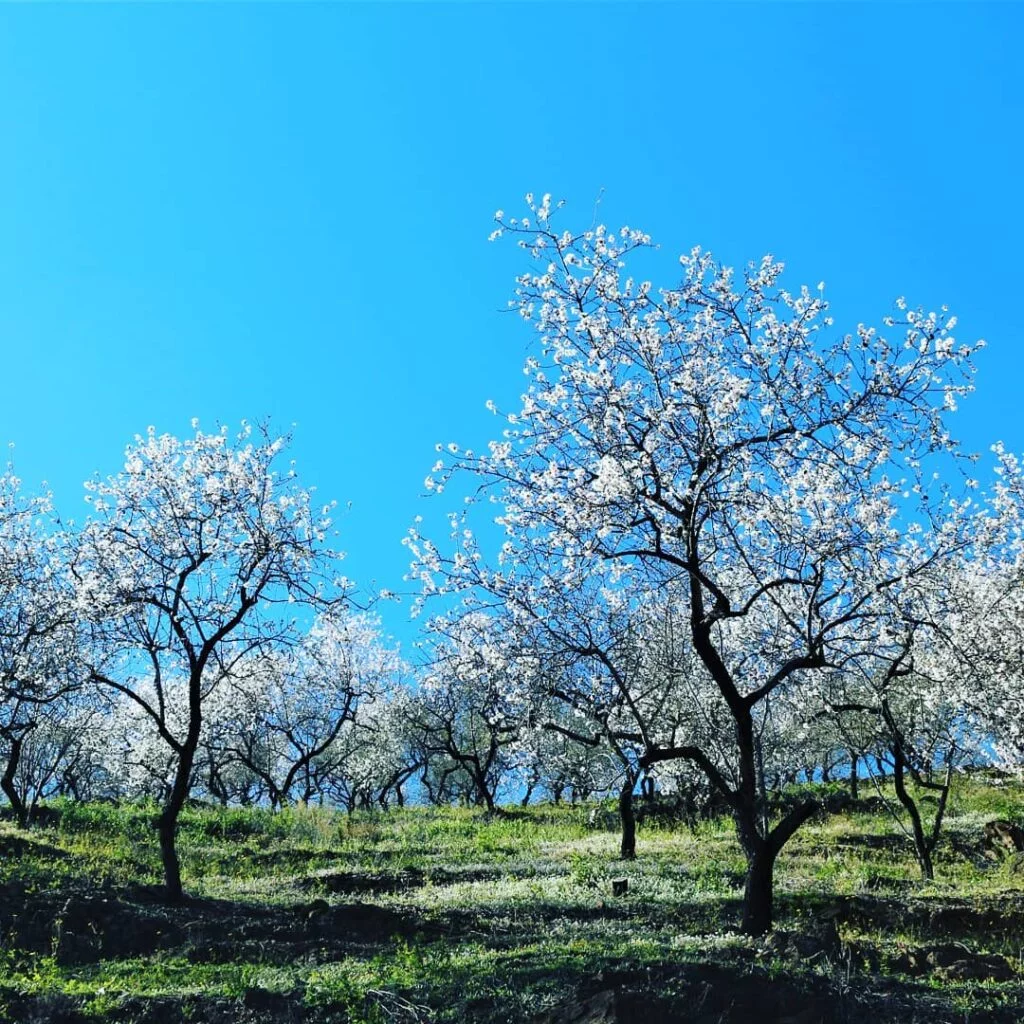
The guided tours are always done in small groups (2 to 8 people max.) to discover the authentic Axarquia.
In the following link you will find all the details and prices of the tours he offers.
The themes of the tours are: the white villages of Axarquia, the wine route, the raisin route, ….
Here are all the guided tours from Torrox, Nerja and Torre del Mar.
Village fiestas

The feria de la Mula, in mid-October, is one of the most authentic ferias in the region. The mula is the king of the region. Mountain crops do not allow the use of mechanised equipment. The mulberry remains the only human aid for cultivation and especially for harvesting.
Another festival: the feria of Arenas, in honour of San Sebastian, in mid-August, offers a beautiful Andalusian village atmosphere.
Where is Arenas?
Booking accommodation
Please indicate the desired dates to check availability.
Some useful links (car hire, other ideas for visits)
Easy and economical bookings
If you are in Andalucia as part of a tour with several major cities to visit, here are some links that may be of interest:
Seville
Seville, the capital of Andalucia, is a city full of treasures to discover and monuments to visit.
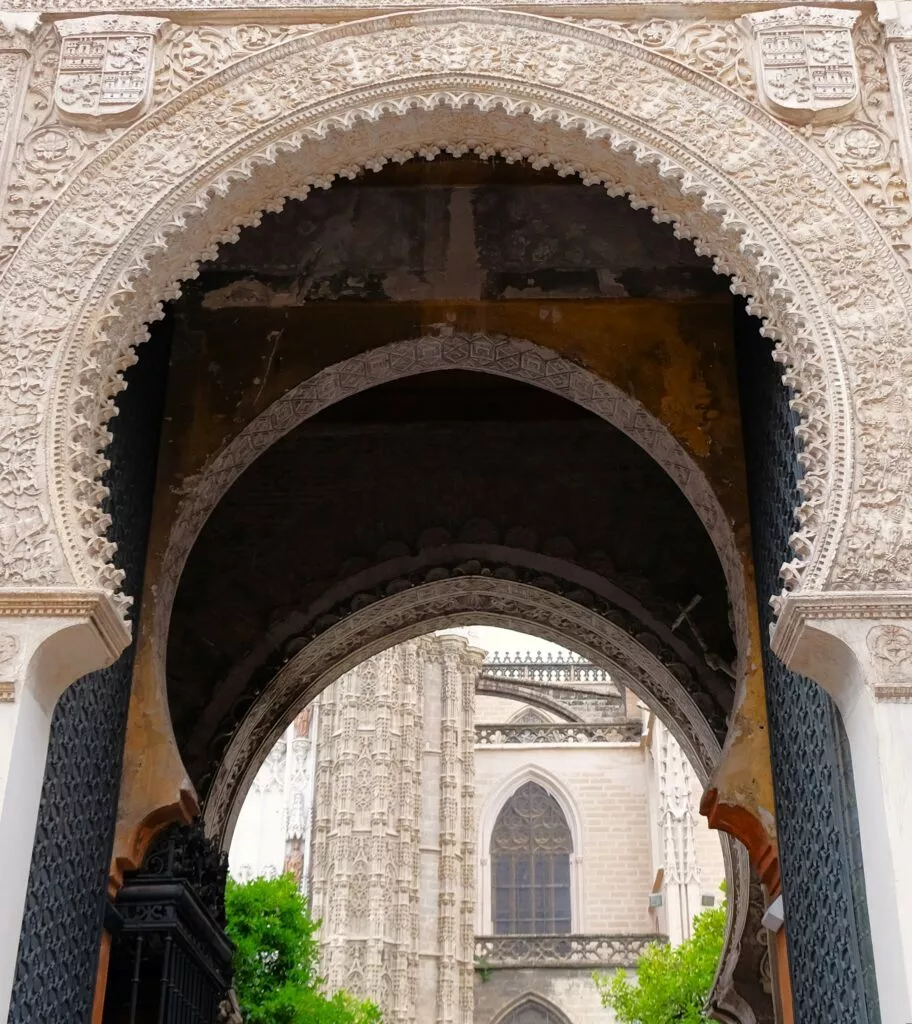
Here you will find everything you can see in Seville in 3 days. And for those who will stay longer you will also find information on secret Seville and the Santa Cruz and Triana districts.
Cadiz
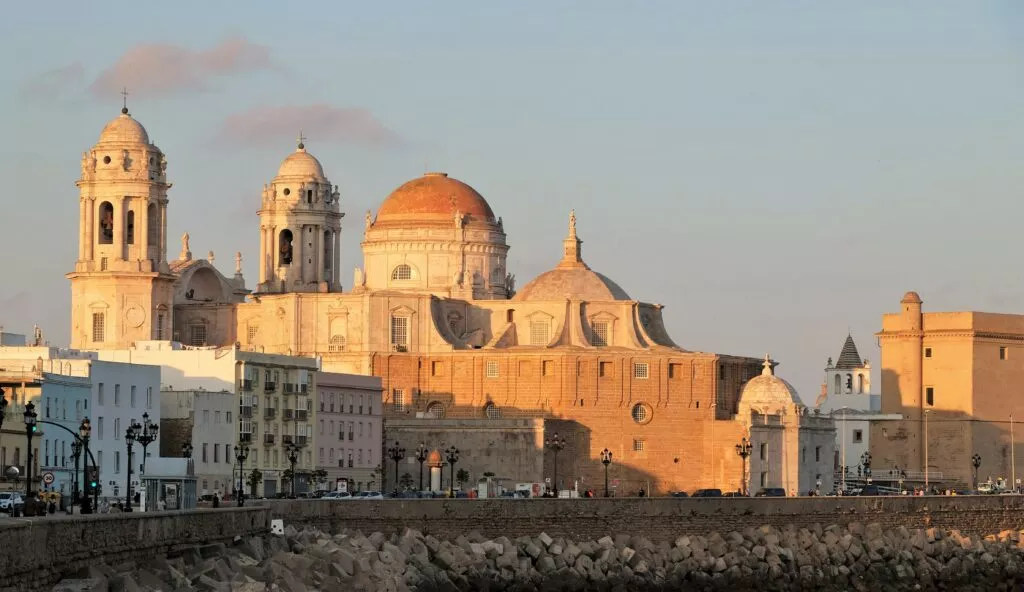
Visit Cadiz, a city with an incredible past and great beauty, on the Costa del la Luz.
Malaga
When you reach the Costa del Sol you will find in this link all must-sees in Malaga :

Granada
Discover what to see in Granada, and visit the Albaicin and Sacromonte districts:
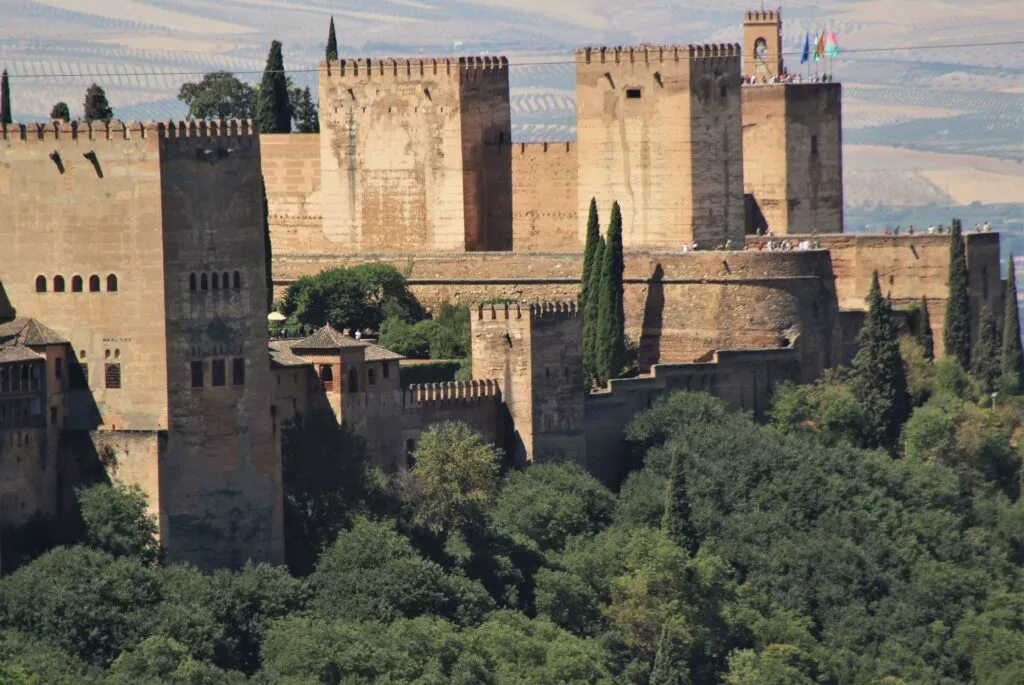
Cordoba
And of course, visit Cordoba, the caliphate city, and the Juderia district
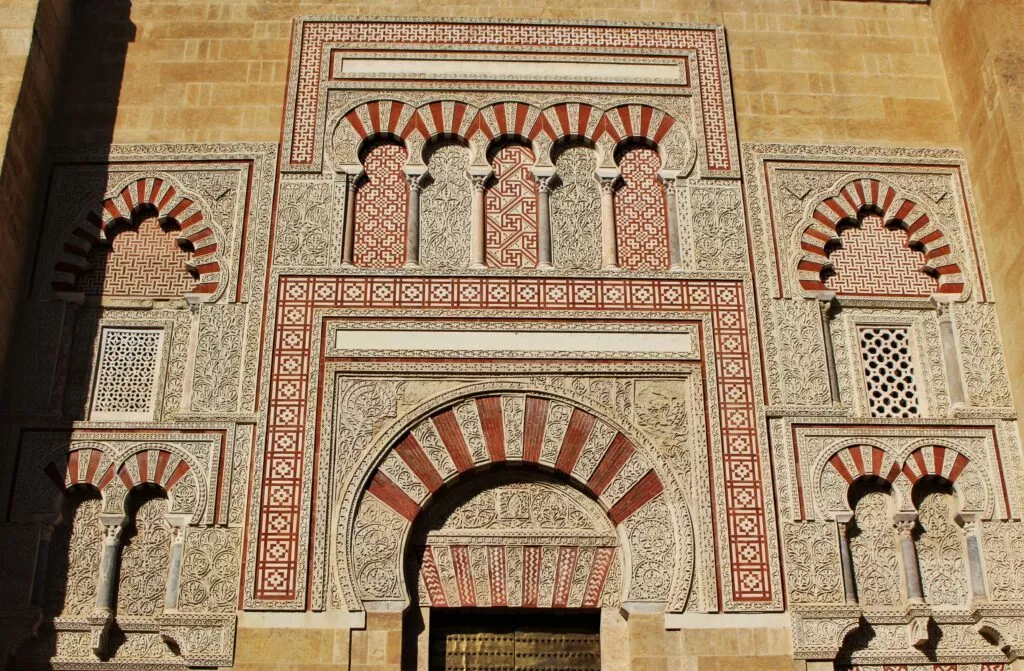
Experiences to discover in the province of Malaga
If you are in the area for a few days, here is a selection of great activities:
Find more ideas for visits to authentic Andalucia: see the blog pages on Andalucia.
Here is the link to receive our newsletter from the andaluciamia.com blog
Here are the latest articles on Andalucia
-
Interactive map of Andalucia with best places to see
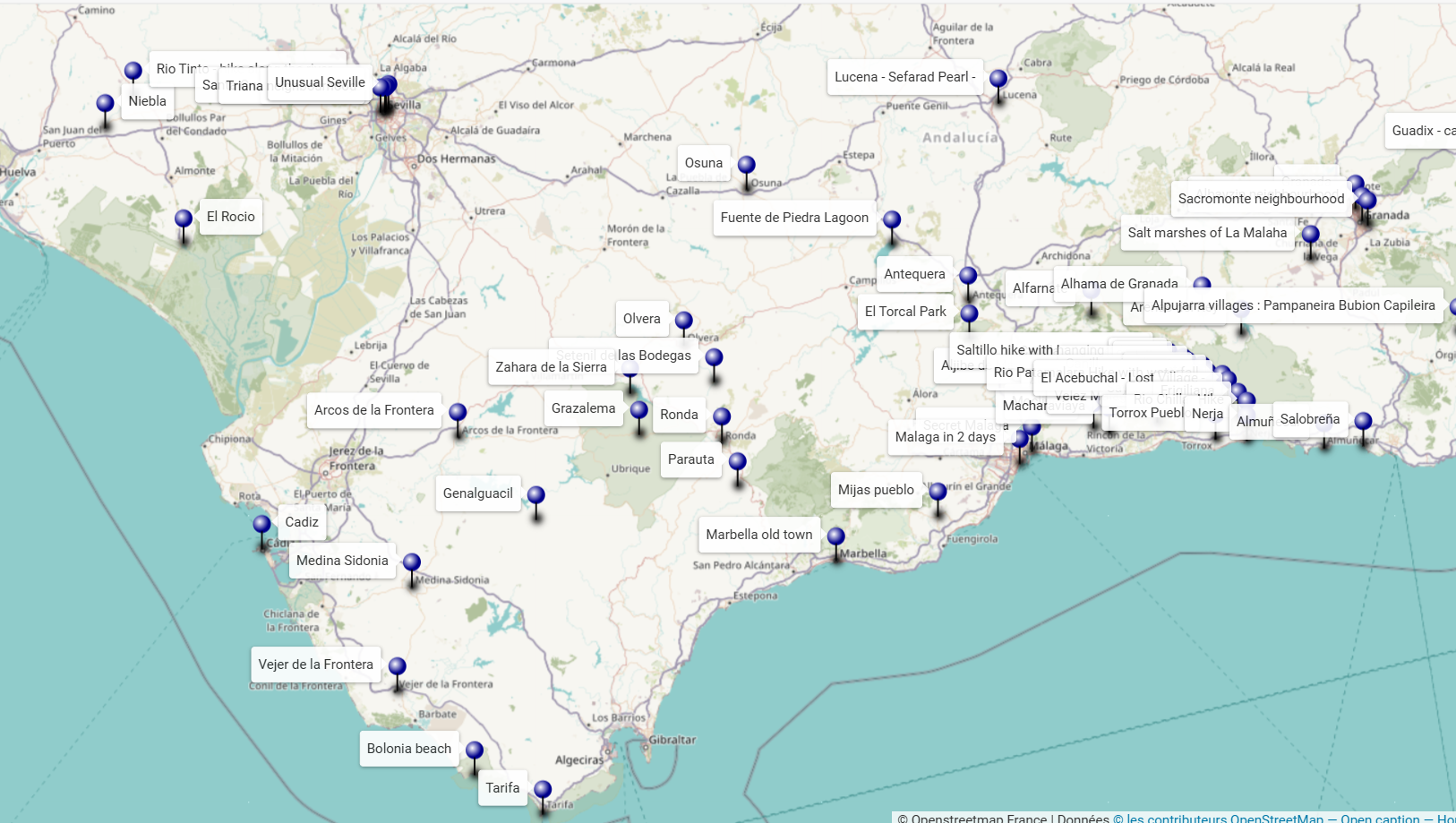
An interactive map of Andalucia to discover the sites to see around your holiday destination or to prepare a tour or road-trip.
-
Visit Olula del Rio, the Mujer de Almanzora and the museum
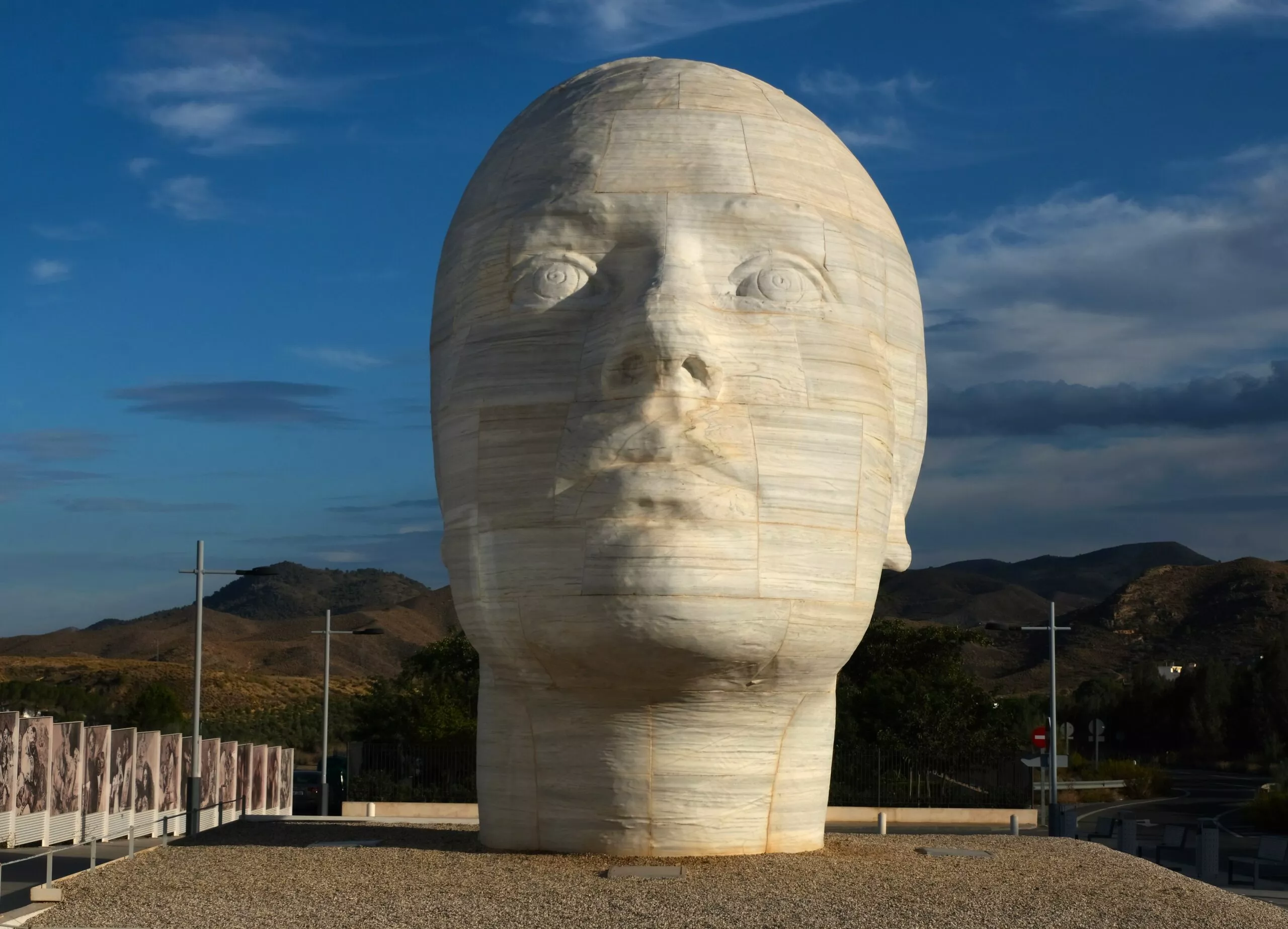
Olula del Rio see its 3 wonders: an extraordinary marble sculpture, a surprising museum and an incredible photography centre.
-
Fiesta del Queso in Zuheros Cordoba

Discover the incredible Cheese Festival – Fiesta del Queso in Zuheros, one of the most beautiful white villages in Spain.
-
What to see in Baeza? – The 10 places to visit –
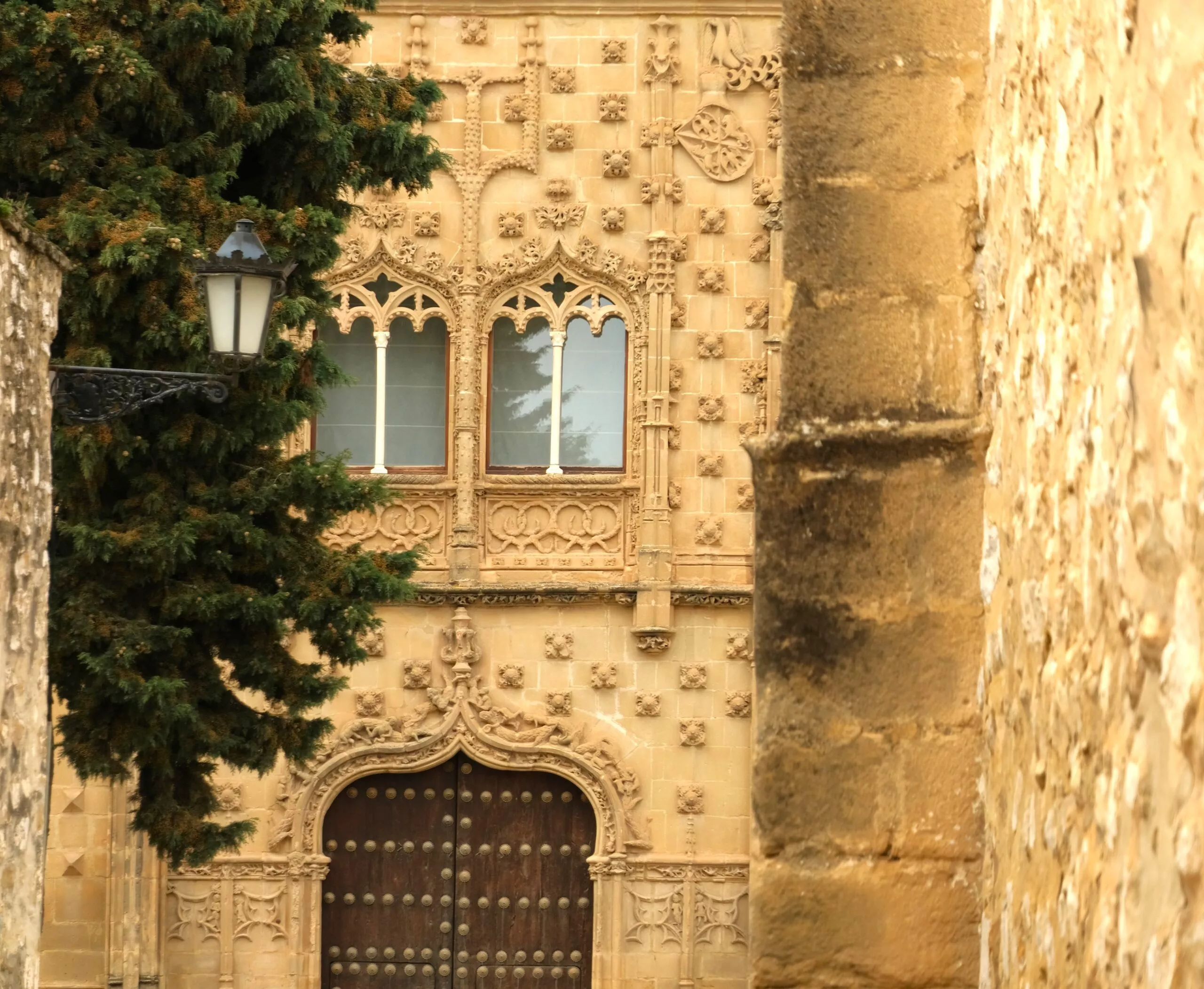
What to see in Baeza one of Andalucia’s must-see towns. Discover the best to see in Baeza, a UNESCO World Heritage Site.
